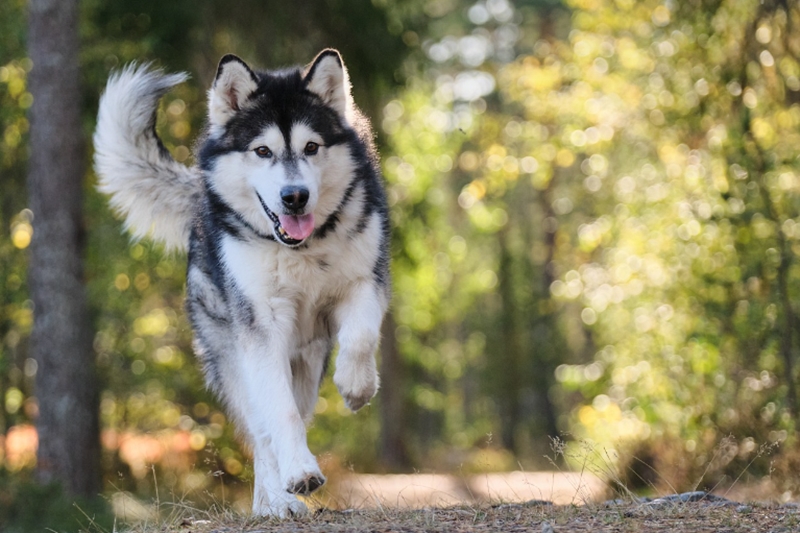Table of Contents
- What Is Dog Daycare?
- Socialization for Dogs
- Exercise and Physical Health
- Mental Wellbeing and Reduced Anxiety
- Establishing a Routine
- Ensuring Safety in Dog Daycare
- Choosing the Right Dog Daycare
- The Overall Impact
What Is Dog Daycare?
As the demands of everyday life have increased, dog daycare centers have emerged as crucial allies for working pet owners seeking secure and engaging environments for their canine companions. These specialized facilities provide structured settings where dogs can flourish, engaging in play, exercise, and mental stimulation throughout their day. For example, enrolling your pet in a dog daycare in Seattle ensures top-tier physical care and an enriching emotional experience, offering a holistic approach to pet well-being that can greatly enhance your dog’s quality of life.
While daycare center services may vary from facility to facility, most include well-monitored playtime, structured feeding schedules, and essential rest periods. This unique setup goes beyond mere supervision, ensuring dogs are actively integrated into an environment that fosters community interaction and healthy activity levels. The burgeoning awareness among pet owners of these multifaceted benefits is a testament to the need to enhance dogs’ lives through social interaction, mental engagement, and sufficient physical exercise. Dog daycare isn’t just about supervision; it’s a comprehensive lifestyle enhancement strategy that contributes to happier, healthier dogs.

Socialization for Dogs
A cornerstone benefit of enrolling a dog in daycare is the advancement of critical social skills indispensable for raising well-rounded pets. As naturally social beings, dogs thrive in settings that promote interaction with humans and among themselves. This interaction is integral for teaching communication skills for their emotional growth and behavior management. The American Society for the Prevention of Cruelty to Animals (ASPCA) emphasizes that socialization significantly alleviates anxiety-prone or aggressive tendencies, thereby promoting adaptability. Regular exposure to varied social settings dramatically increases a dog’s ability to adapt, reducing stress when confronted with new situations, people, or environments. As dogs learn to interpret social cues and engage in healthy play, their confidence improves, paving the way for positive behavior inside and outside the home.
Exercise and Physical Health
Ensuring optimal health through regular exercise is fundamental for dogs’ overall well-being, and this need is effectively addressed by the various engaging activities available at dog daycare facilities. With exercise programs catered to different breeds and energy levels, these centers provide ample opportunities for dogs to run, jump, and play in a secure environment. Regular, structured activity helps regulate weight, supports cardiovascular health, and strengthens muscles. Moreover, it contributes to a dog’s physical robustness, reducing the risk of obesity-related conditions. Like humans, exercise uplifts a dog’s mood significantly, fostering a sense of fulfillment and pleasure. A physically stimulated and well-exercised dog tends to exhibit fewer behavioral issues, such as excessive chewing or barking at home, creating a more harmonious living environment for the pet and its owner.
Mental Wellbeing and Reduced Anxiety
Daycare centers play an essential role in addressing physical needs and supporting dogs’ mental health, effectively reducing the potential for anxiety and boredom. Like humans, dogs can experience restlessness and frustration, which daycare alleviates through a blend of mentally stimulating activities. These activities include puzzle toys, social group exercises, and exploratory trails that intrigue their senses and engage their minds. This mental stimulation helps curb unwanted behaviors arising from accumulated energy and nurtures their cognitive development. Exposure to diverse sensory stimuli in a daycare setting fosters their cognitive abilities, leading to more balanced and happier pets.
Establishing a Routine
Dogs naturally gravitate towards routine, finding profound comfort and security in predictable structures. Daycare centers provide:
- Meticulously structured environments facilitate the establishment of these routines.
- Incorporating daily schedules that encompass planned playtimes.
- Meal times.
- Rest periods.
This consistency significantly aids dogs in balancing their energy levels. It ensures their needs are reliably met, promoting positive behavior at daycare and home. For young puppies and rescue dogs, in particular, the stability offered by a consistent routine can be pivotal in fostering trust, security, and an overall sense of well-being.
Ensuring Safety in Dog Daycare
Safety remains a primary focus in any reputable dog daycare center, with these establishments implementing comprehensive safety measures to uphold the well-being of the dogs in their care. Skilled staff proficiently manage group dynamics, are trained in animal first aid, and are adept at recognizing potential threats. According to insights from Psychology Today, selecting a daycare renowned for its rigorous safety protocols and positive environment offers pet owners significant peace of mind. Regular safety audits and a commitment to creating nurturing settings underscore the critical nature of providing secure and enjoyable experiences for all canine guests.
Choosing the Right Dog Daycare
Selecting the ideal daycare for your furry friend requires a thoughtful assessment, reassuring that the center prioritizes safety and engagement. When evaluating potential facilities, consider their reputation, the qualifications and demeanor of their staff, and the range of activities on offer. Arranging a tour permits direct observation of staff interactions with dogs. It enables an appraisal of the premises’ cleanliness, safety, and atmosphere. Prioritizing daycares that place a premium on dog happiness and health ensures a positive and fulfilling experience for your pet, enhancing their quality of life and making a meaningful difference in their day-to-day well-being.
The Overall Impact
Dog daycare transcends the traditional role of mere pet sitting, representing an integrative approach that enriches pets’ physical and emotional lives. By providing opportunities for socialization, exercise, and mental engagement, dog daycare facilities serve as an extension of care that attends to all facets of a dog’s life. While dogs flourish in these structured environments, pet owners enjoy the reassurance of knowing their companions are thriving in a safe and supportive setting. Ultimately, the holistic approach to pet care offered by daycare centers fosters healthier, happier, and more well-adjusted dogs, substantially improving the quality of life for pets and their families.







